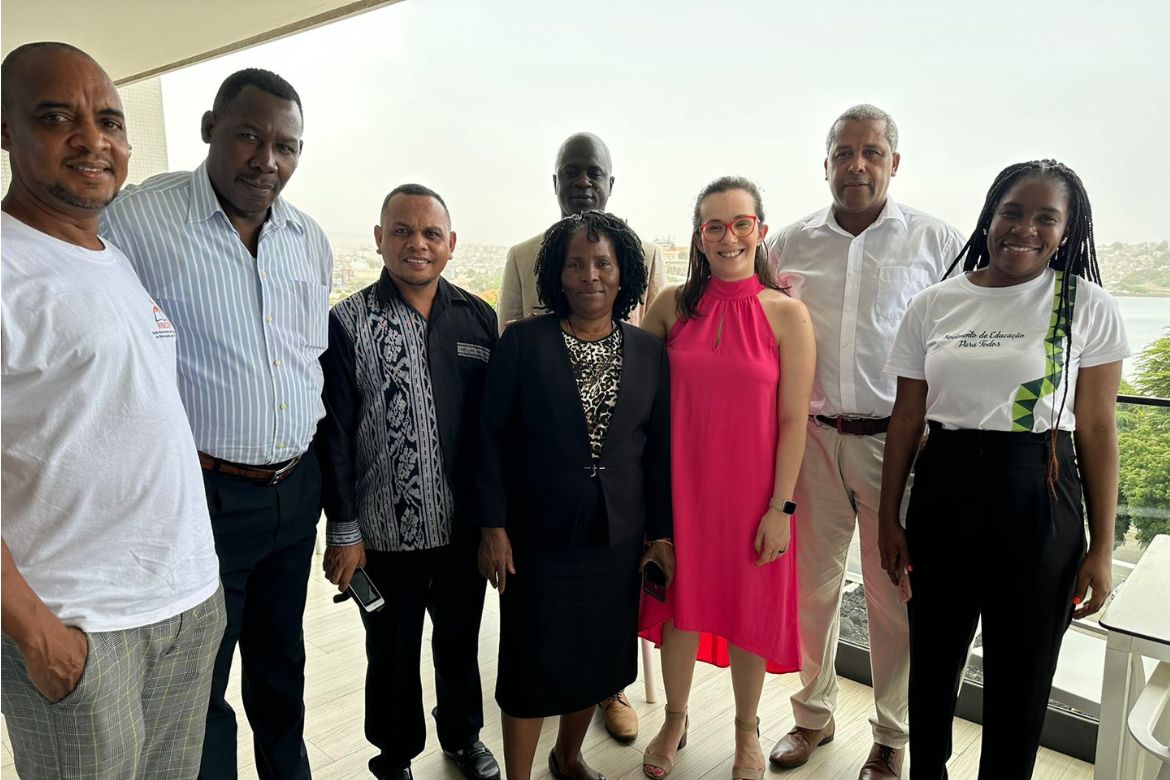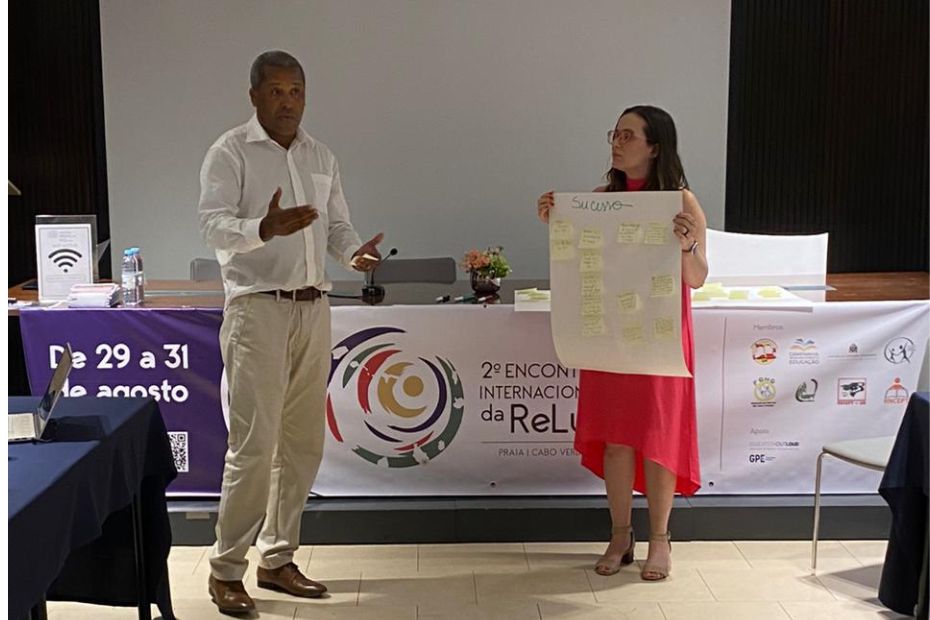
Brazilian Campaign for the Right to Education
Shaping Education for the Future
With the support of Education Out Loud, the Brazilian Campaign for the Right to Education is proud to present six straightforward guidelines for the institutional development on advocacy and social accountability.
These guidelines are the direct outcome of a collaborative learning initiative among Portuguese-speaking national education coalitions, facilitated by RELUS*.
The initiative kicked off from August 29th to 31st 2023, in Praia, Cape Verde, marking a significant outcome in strengthening the networks’s commitment to promoting and defending the right to education in Portuguese-speaking countries.
This gathering fostered an open dialogue to exchange best practices, experiences and challenges among the participating organizations and shaping a plan for new subsequent Learning Cycles.
Driving Collaborative Learning: To Empower Education in the Portuguese-speaking Countries
The event was crucial for gathering important learnings from all participants to develop a future strategy. After the physical meeting, the participants joined some online learning cycles which included more staff, governance, and other members of the coalitions to open up for more perspectives.
The participants defined responsibilities and gained insights aimed at enhancing planning, monitoring, and evaluation processes. Additionally, they collaborated to establish common protocols for advocating and monitoring SDG 4 in each country.

The first module focused on “Institutional Coordination”; the second was about “Institutional Development”; and the third addressed “Advocacy”. Virtual learning sessions took place during September and November 2023, with a total of 25 participants.
The collaborative construction of the learning process provided participants with the opportunity to prepare presentations and organize approaches with their teams.
At the end of the collaborative learning, the participants were invited to respond to a survey about their experience.
In summary, they emphasized the importance of these initiatives and stated that they are already including the acquired knowledge into practice. They also highlighted the importance of continuing the training, involving more learning on specific issues as well as face-to-face guidance in the practical application of knowledge.
Six joint Learning Products came out of the collaborative learning process based on all discussions and cases.
6 Guidelines for a Just and Inclusive Educational Future
- Guide 1 – Theory of Change – ENG
- Guide 2 – Institutional Development – ENG
- Guide 3 – Report Production – ENG
- Guide 4 – Institutional mobilization – ENG
- Guide 5 – Advocacy – ENG
- Guide 6 – SDG 4 monitoring – ENG
Guides en portugais:
- Guia 1 – Teoria da Mudança – PORT
- Guia 2 – Desenvolvimento Institucional – PORT
- Guia 3 – Produção de Relatórios – PORT
- Guia 4 – Articulação Institucional – PORT
- Guia 5 – Advocacia – PORT
- Guia 6 – Monitoramento de ODS 4 – PORT
The learning collaborative has decided to apply EOL in West and Central Africa for a continuation of their process of peer learning and experience exchange during 2024. However, they emphasize the importance of using a more differentiated approach to learning, considering the variety in capacity and maturity among participating coalitions and organizations in the design of learning processes.
*ReLus is an international civil society coalition that unites education coalitions and national organizations from Angola, Brazil, Cape Verde, Guinea Bissau, Mozambique, Portugal, São Tomé and Príncipe, and East Timor, spanning four continents: Africa, the Americas, Asia, and Europe.
